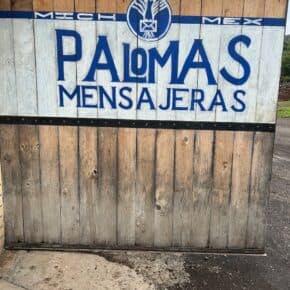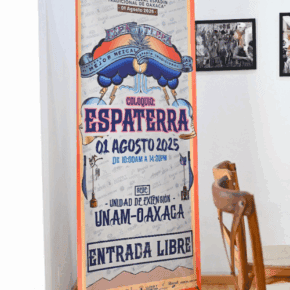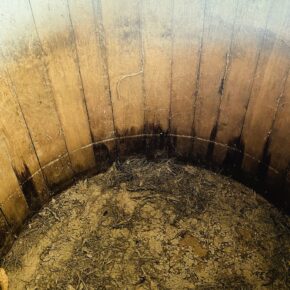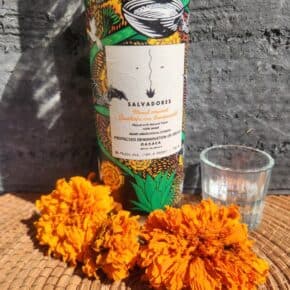First of all, it’s great to be back in Oaxaca. There is the hot sun, warm evenings that lend themselves to long conversations into the middle of the night, over mezcal of course. The smell of fresh, hot tortillas, the bustle of the market, the setting sun over the mountains, and that golden glow that settles over the cobblestone streets.

And then there is that whole small world thing, that just seems to get smaller and smaller each week. It all came about when a friend of a friend said to me – oh, my uncle has a palenque and you should meet him. Several flurried text messages later, it was set – we would meet the uncle in Matatlan, the first visit of three palenque visits that day. And so began the usual process of getting the rental car, buying empty bottles, fortifying our stomachs with memelitas and then heading out from the city.

“We” this time encompassed three women (two foreign, one Oaxaqueña) a baby and the one man, the nephew of the palenquero. We arrived at the palenque and saw that a roast was just getting underway. The stones were being fired up – in this case about 7 hours of heating – and the maguey hearts were being split and readied to go into the pit. It was all very dramatic with the heat, the sound of metal slicing, the dark, pluming clouds.
We escaped into the cool of the palenque and met the uncle, Don Enrique Jimenez, a third FOURTH generation palenquero. He walked us around and showed us two rather extraordinary things – a still created to distill mezcal five times (usually it is double distilled) and a room that looked like something out of a horror movie in which the maguey is steam roasted, creating a “sin humo” (without smoke) mezcal. This is apparently an incredibly expensive and unique thing here and very much an experiment.



The conversation ran back and forth between the process, the flavors, the changing dynamics of the mezcal market, and the artisanal brands available in the United States. I mentioned recently tasting the Fidencio Madrecuixe and how much I loved the flavor. Don Enrique smiled hugely and then told me that he was the palenquero for that brand. This happy news was soon followed by some incredibly sad news. Only 300 bottles of that madrecuixe were produced – perfectly understandable and respectful as that is the way of artisanal mezcal production. The sad news: Apparently it is not a good year for the wild magueys thus far. They are too small, their flavor too lacking, the prices to high for any that are good. In short, at this time, there will be no more madrecuixe produced, so if you are one of the lucky ones to have a bottle, enjoy.

I am going to continue to look into this situation and will keep you posted. The mere thought of a year of wild maguey shortage is a heartbreak almost too much to bear.












Very interesting!